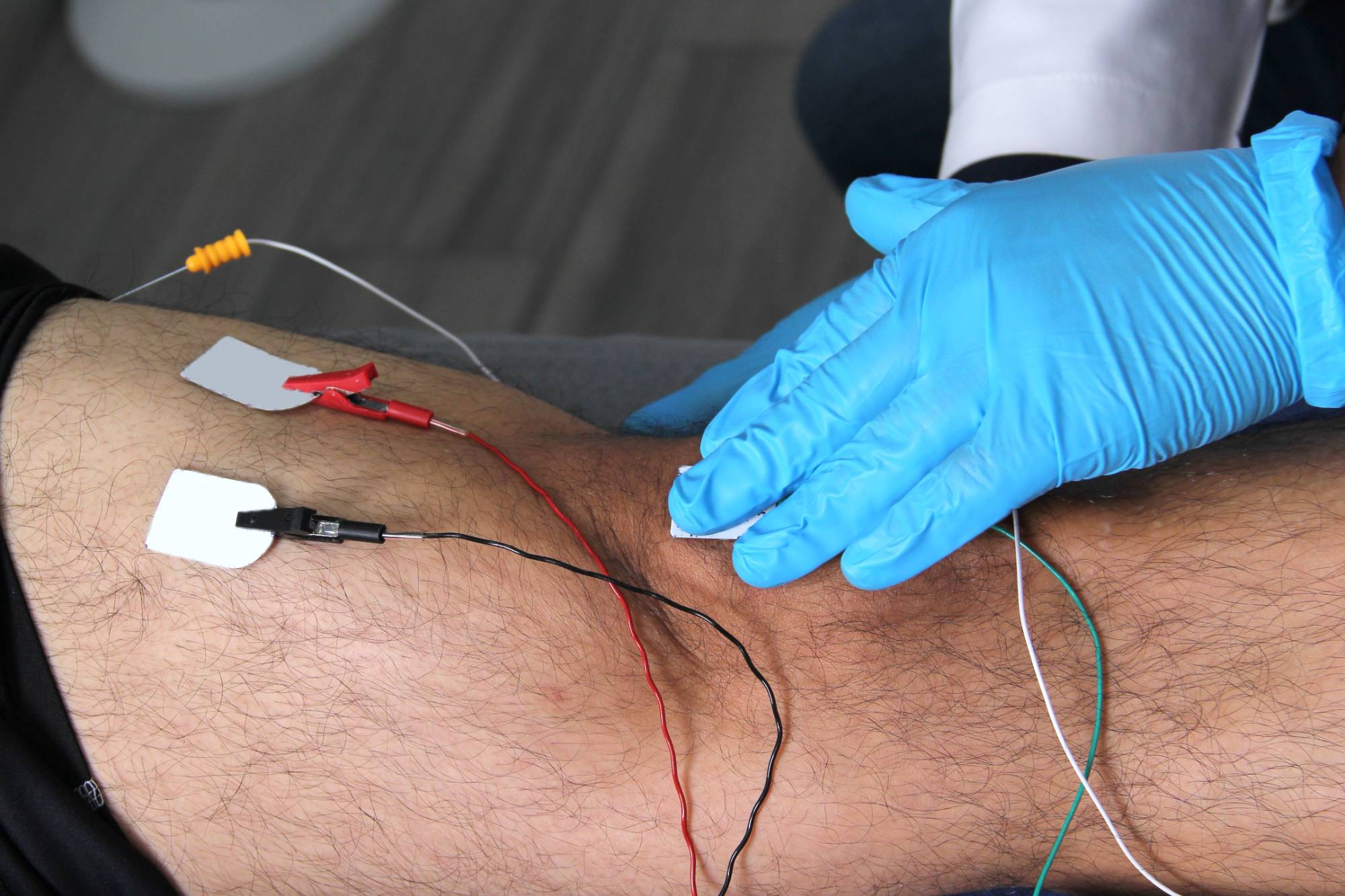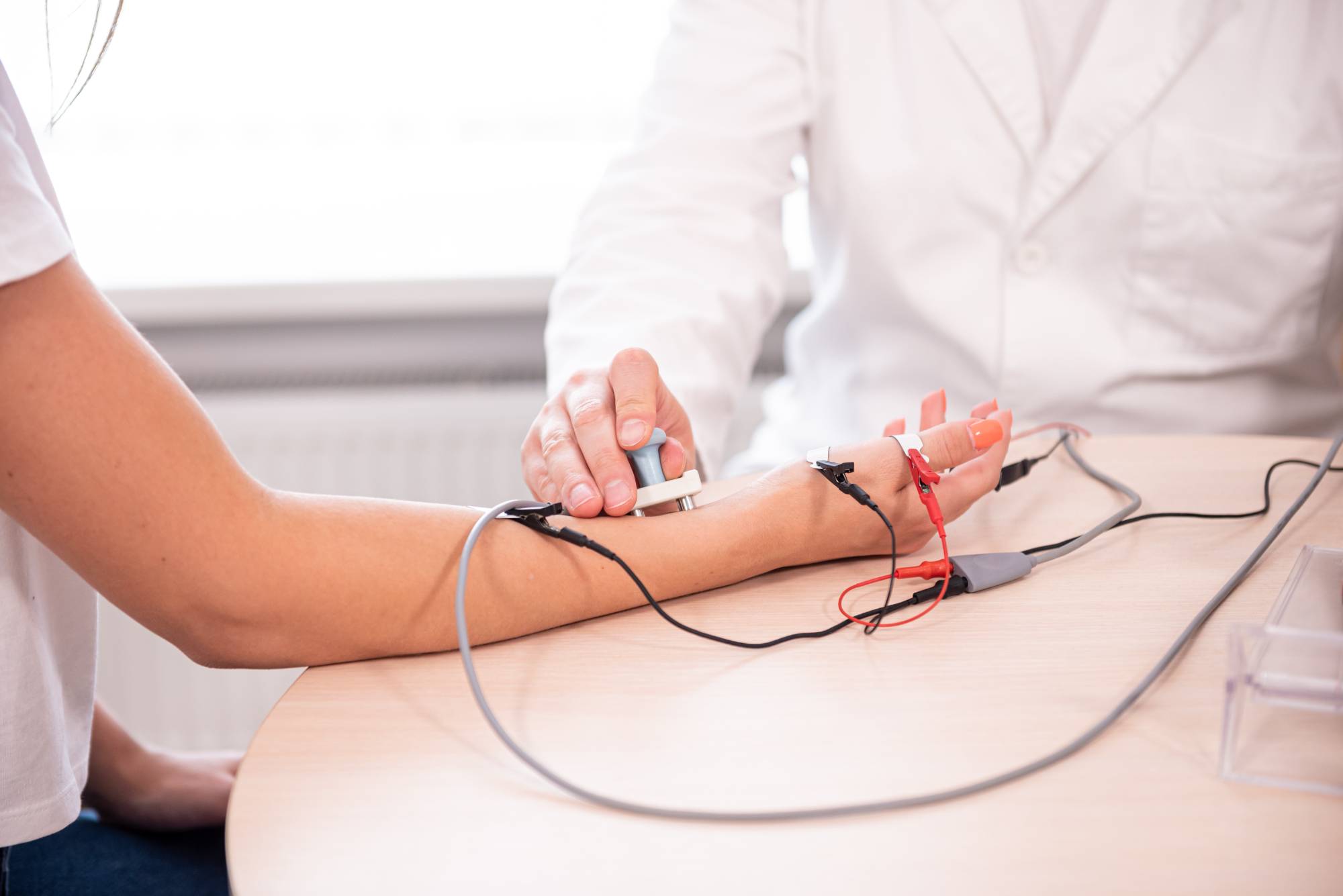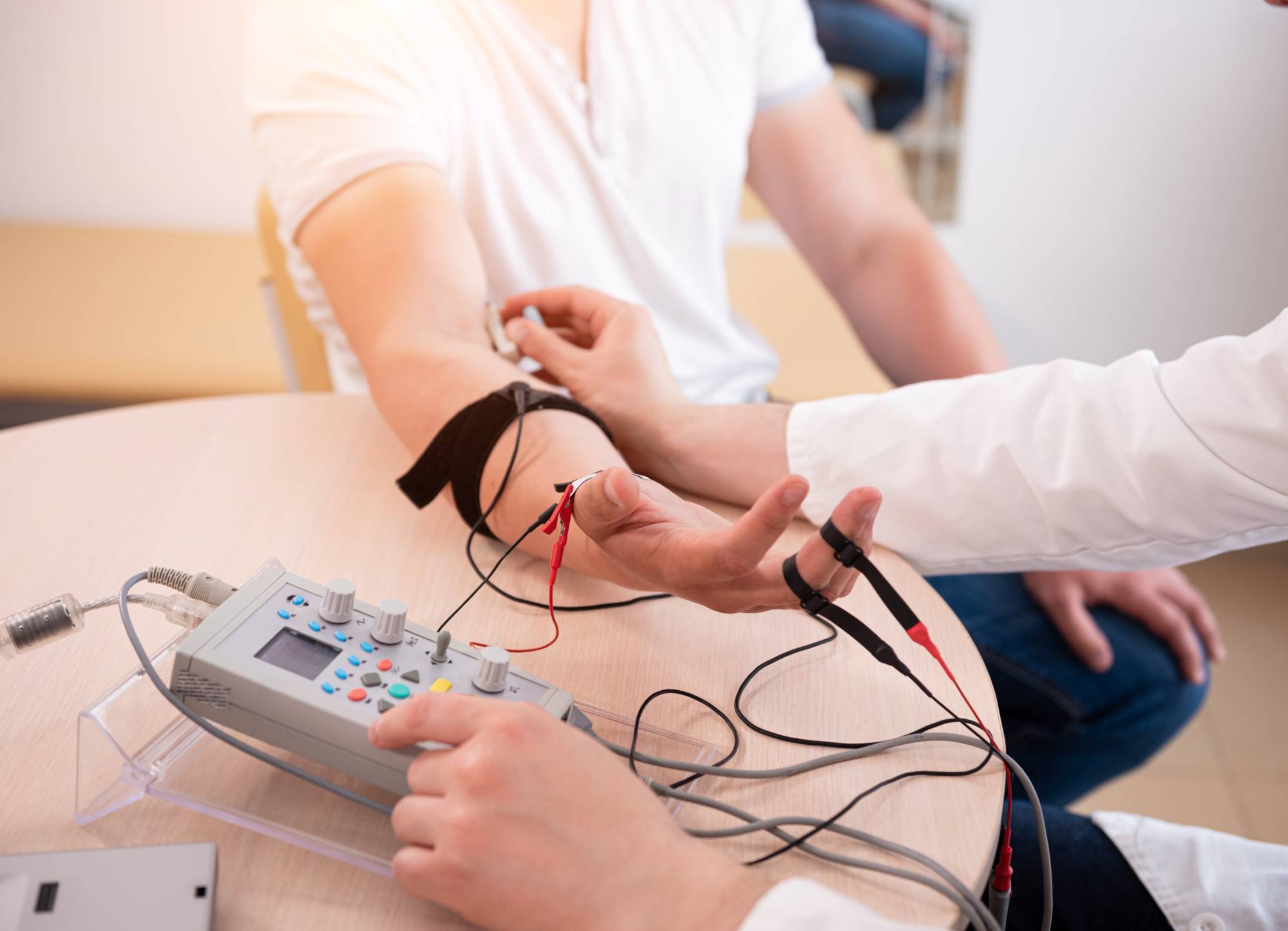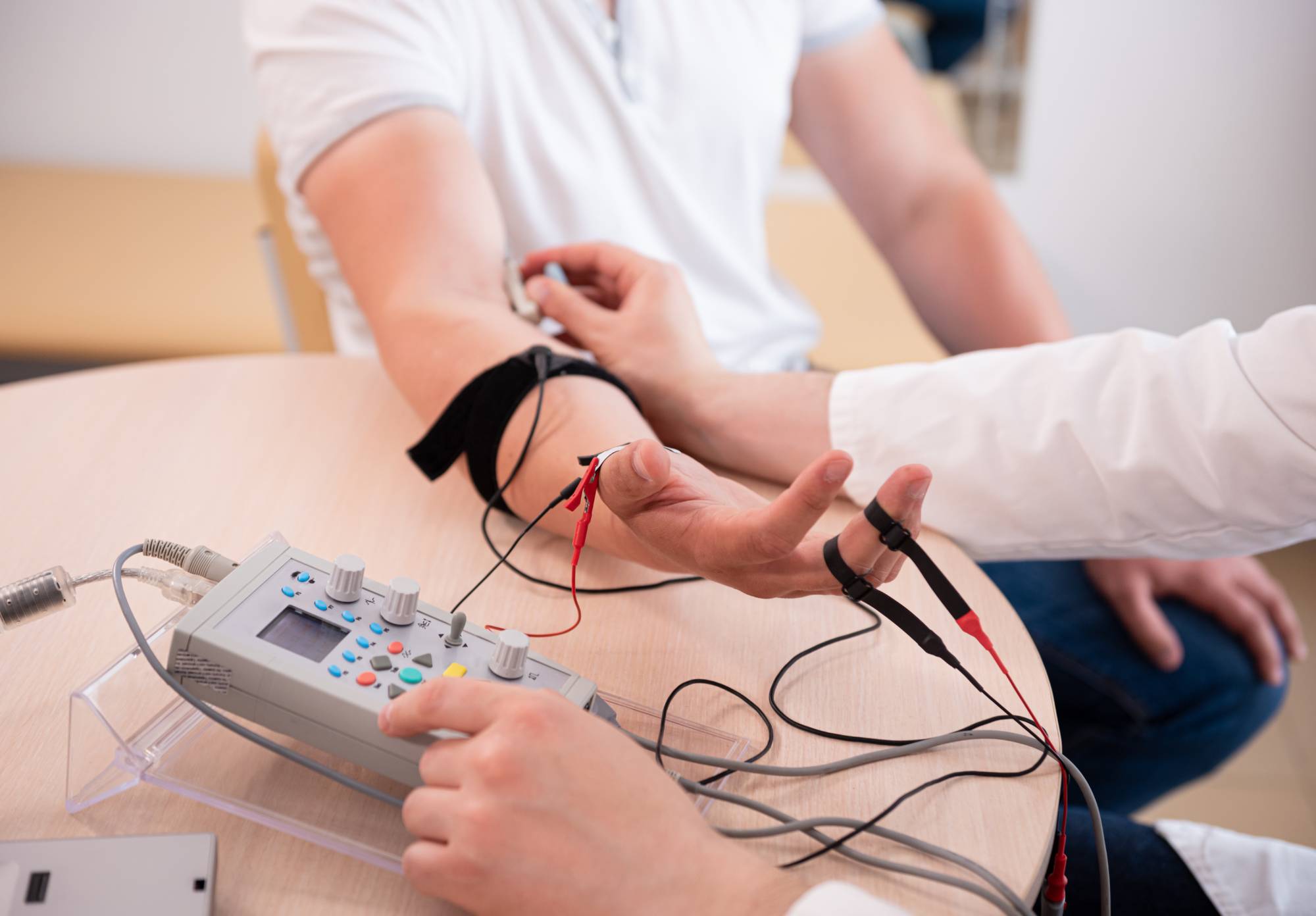Precise electromyography testing that identifies nerve and muscle disorders so you can move forward with the right treatment.

Reviews

That numbness in your hands isn’t something you have to live with forever. The muscle weakness that’s been worrying you doesn’t have to remain a mystery.
EMG testing gives you concrete answers about what’s happening with your nerves and muscles. You’ll know whether that tingling is carpal tunnel syndrome, if your back pain involves nerve compression, or if your symptoms point to something else entirely.
Most patients leave with a clear understanding of their condition and a specific plan for treatment. No more guessing. No more wondering if your symptoms are “all in your head.” Just real answers from diagnostic testing that actually works.
NY Spine Medicine has been providing comprehensive diagnostic services to patients throughout Northern New Jersey for years. Our team includes board-certified specialists who understand that getting an accurate diagnosis is the first step toward feeling better.
Located conveniently in the Elmwood Park area, our practice focuses specifically on spine, nerve, and muscle conditions. This isn’t a general practice trying to do everything – we’re a specialized center where EMG testing and nerve conduction studies are performed daily.
Our physicians have diagnosed thousands of cases, from common conditions like carpal tunnel syndrome to complex nerve disorders that other doctors couldn’t identify.

Your EMG testing appointment typically takes 30 to 45 minutes. First, you’ll discuss your symptoms with our physician, who will explain exactly what we’re looking for and why.
The nerve conduction study comes first. Small electrodes are placed on your skin, and mild electrical pulses measure how well your nerves transmit signals. Most patients describe this as feeling like small static shocks – uncomfortable for a moment, but not painful.
Next is the electromyography portion, where a thin needle electrode is inserted into specific muscles to measure electrical activity. Our physician will test muscles both at rest and when you contract them, listening for abnormal patterns that indicate nerve or muscle problems.
You’ll get your results immediately. Our physician will show you the readings, explain what they mean, and discuss treatment options based on the findings. You’ll leave with a clear understanding of your condition and next steps.

Ready to get started?
Your EMG testing includes both electromyography and nerve conduction studies in one appointment. This comprehensive approach means you won’t need multiple visits to get complete information about your condition.
The testing can diagnose conditions like carpal tunnel syndrome, ulnar neuropathy, sciatica, herniated disc nerve compression, diabetic neuropathy, and various muscle disorders. You’ll also receive a detailed report that can be shared with your referring physician or other specialists.
Most insurance plans cover EMG testing when medically necessary. Our staff handles prior authorizations and works directly with your insurance company to minimize your out-of-pocket costs. You’ll know your expected costs before the procedure.

New York:
Florida:
Support